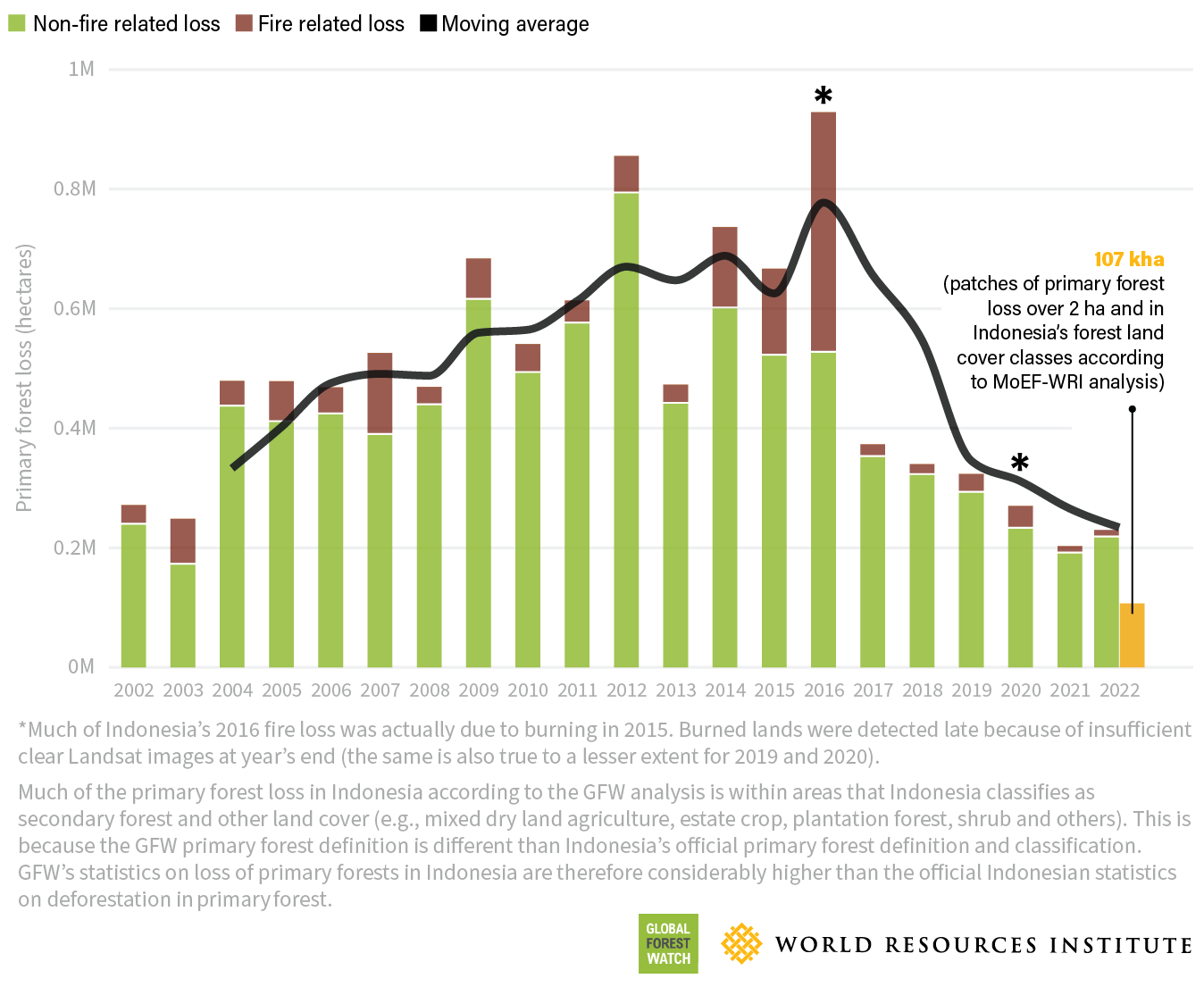Record-Breaking Global Forest Loss: Wildfires Drive Unprecedented Destruction

Table of Contents
The Devastating Impact of Wildfires on Global Forests
Wildfires, once a natural part of some ecosystems, are now occurring with unprecedented frequency and intensity, largely fueled by climate change. This escalating trend is a primary driver of record-breaking global forest loss.
Increased Frequency and Intensity of Wildfires
The past decade has witnessed a dramatic surge in the number and size of wildfires globally. Rising global temperatures, prolonged droughts, and increasingly erratic weather patterns create ideal conditions for ignition and rapid spread.
- Examples: The Australian bushfires of 2019-2020, the Amazon rainforest fires of 2019, and the California wildfires of recent years are stark reminders of the destructive power of these events.
- Statistics: Data from NASA shows a significant increase in the area burned annually, with certain regions experiencing exponentially higher wildfire activity. The Food and Agriculture Organization of the United Nations (FAO) provides further alarming statistics on forest area lost to wildfires.
- Contributing Factors: Beyond climate change, human activities such as improper forest management, arson, and discarded cigarettes contribute significantly to wildfire ignition and spread. Drought conditions, exacerbated by climate change, further amplify the risk.
Long-Term Ecological Consequences of Wildfire Damage
The impact of wildfires extends far beyond the immediate destruction of trees. The long-term ecological consequences are devastating and far-reaching.
- Biodiversity Loss: Wildfires destroy habitats, leading to the loss of countless plant and animal species, including endangered ones. Recovery can take decades, if it occurs at all, for some ecosystems.
- Soil Erosion: The removal of vegetation leaves soil exposed to wind and rain, resulting in severe erosion and degradation of fertile land. This impacts water quality and agricultural productivity.
- Disrupted Water Cycles: Forests play a crucial role in regulating water cycles. Wildfire damage disrupts these cycles, leading to changes in rainfall patterns, increased flooding, and water scarcity in affected areas.
- Increased Greenhouse Gas Emissions: Burning forests release vast amounts of carbon dioxide and other greenhouse gases into the atmosphere, exacerbating climate change and creating a vicious cycle. This significantly contributes to global warming, further increasing the risk of future wildfires.
Deforestation Beyond Wildfires: Other Major Contributing Factors
While wildfires are a significant factor, deforestation driven by other human activities also contributes significantly to record-breaking global forest loss.
Illegal Logging and Land Conversion
Illegal logging remains a major driver of deforestation worldwide, often fueled by the demand for timber and agricultural land. Vast tracts of forest are cleared for palm oil plantations, cattle ranches, and other agricultural purposes.
- Statistics: Organizations like the Global Forest Watch provide data illustrating the scale of illegal logging and its impact on different regions.
- Regions Affected: The Amazon rainforest, the Congo Basin, and Southeast Asia are particularly vulnerable to illegal logging and land conversion.
- Economic Drivers: The demand for cheap commodities and the lack of effective law enforcement contribute to the persistence of illegal logging.
Sustainable Forestry Practices and Their Importance
Sustainable forestry practices are crucial to mitigating deforestation and preventing further global forest loss. Responsible resource management, reforestation, and afforestation are essential to ensuring the long-term health of our forests.
- Sustainable Initiatives: The Forest Stewardship Council (FSC) promotes sustainable forest management certification, providing a framework for responsible logging and forest conservation.
- Reforestation and Afforestation: Planting new trees is vital to restoring degraded forests and increasing forest cover. Governmental policies and community-led initiatives play a crucial role.
- Benefits: Sustainable forestry supports local economies, provides jobs, and protects biodiversity, while also mitigating climate change.
Combating Global Forest Loss: Solutions and Strategies
Addressing the crisis of record-breaking global forest loss requires a multi-pronged approach involving international cooperation, technological advancements, and community engagement.
International Cooperation and Policy Changes
Strong international agreements and national policies are vital to combatting deforestation and protecting forests. Stricter regulations on logging, land conversion, and trade in illegal timber are necessary.
- International Collaborations: Agreements like the Paris Agreement highlight the international commitment to addressing climate change and forest conservation.
- Policy Changes: Governments need to implement effective policies to enforce regulations, protect endangered species, and promote sustainable forestry.
Technological Advancements in Forest Monitoring and Fire Prevention
Technology offers powerful tools for monitoring forests and preventing wildfires. Satellite imagery, artificial intelligence, and early warning systems can help identify deforestation hotspots, monitor forest health, and predict wildfire risk.
- Innovative Technologies: Advanced satellite imagery allows for the real-time tracking of deforestation, while AI algorithms can analyze data to predict wildfire risks.
- Effectiveness: Early warning systems can significantly reduce the damage caused by wildfires by enabling timely interventions.
Community Engagement and Public Awareness
Engaging local communities and raising public awareness are essential for successful forest conservation efforts. Empowering local communities to manage and protect their forests is crucial.
- Community-Based Conservation: Many successful conservation programs involve the active participation of local communities, who often have intimate knowledge of their forest ecosystems.
- Education and Advocacy: Educating the public about the importance of forests and the devastating consequences of deforestation is crucial in fostering support for conservation efforts.
Conclusion
The scale of record-breaking global forest loss, driven by wildfires and other human activities, is alarming. The ecological consequences are severe, impacting biodiversity, climate stability, and human well-being. Preventing global forest loss requires immediate and concerted action. We must support organizations working to combat deforestation, advocate for policies that promote sustainable forestry practices and wildfire prevention, and engage in responsible consumption. Let's work together to protect our forests and secure a healthier future for generations to come. Support organizations like the WWF, Greenpeace, and the Rainforest Alliance to help reduce wildfire damage and protect our forests. Sign petitions and advocate for policies that prioritize forest conservation and sustainable forestry management, helping to prevent global forest loss and safeguarding our planet.

Featured Posts
-
 Leeds Uniteds Pursuit Of Kyle Walker Peters Transfer Update
May 24, 2025
Leeds Uniteds Pursuit Of Kyle Walker Peters Transfer Update
May 24, 2025 -
 The Kyle Walker Mystery Women And Annie Kilner Story Explained
May 24, 2025
The Kyle Walker Mystery Women And Annie Kilner Story Explained
May 24, 2025 -
 Sterke Markt Aex Fondsen Klimmen Na Uitstel Trump Besluit
May 24, 2025
Sterke Markt Aex Fondsen Klimmen Na Uitstel Trump Besluit
May 24, 2025 -
 Frankfurt Stock Market Opening Dax Holds Steady After Record High
May 24, 2025
Frankfurt Stock Market Opening Dax Holds Steady After Record High
May 24, 2025 -
 Aubrey Wursts Stellar Performance Propels Maryland Softball To Victory
May 24, 2025
Aubrey Wursts Stellar Performance Propels Maryland Softball To Victory
May 24, 2025
Latest Posts
-
 Understanding Dylan Dreyer And Brian Ficheras Partnership
May 24, 2025
Understanding Dylan Dreyer And Brian Ficheras Partnership
May 24, 2025 -
 Dylan Dreyer And Brian Ficheras Marriage Everything We Know
May 24, 2025
Dylan Dreyer And Brian Ficheras Marriage Everything We Know
May 24, 2025 -
 Today Show Host Dylan Dreyer Details Of A Near Disaster
May 24, 2025
Today Show Host Dylan Dreyer Details Of A Near Disaster
May 24, 2025 -
 Dylan Dreyer And Brian Fichera A Look At Their Relationship
May 24, 2025
Dylan Dreyer And Brian Fichera A Look At Their Relationship
May 24, 2025 -
 Dylan Dreyer And The Today Show A Close Call You Wont Believe
May 24, 2025
Dylan Dreyer And The Today Show A Close Call You Wont Believe
May 24, 2025
